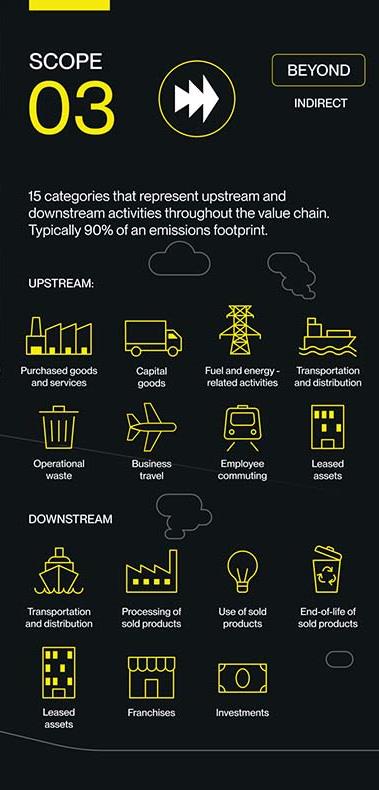SCOPE 3: Understanding and Reducing Emissions Webinar
Event Details
✅ What Is Scope 3?
Scope 3 emissions are indirect greenhouse gas emissions that occur outside your company’s direct operations — but are still part of your value chain.
Unlike Scope 1 (your direct emissions) or Scope 2 (emissions from purchased energy), Scope 3 looks at the full life cycle of your products — from raw materials to end-of-life disposal.
🏗 Examples for Manufacturers & Producers:
| Scope 3 Category | Example in Manufacturing |
|---|---|
| Purchased Goods & Services | Emissions from materials like steel, plastics, electronics. |
| Transportation & Distribution | Emissions from shipping raw materials or delivering products to customers. |
| Waste Generated in Operations | Emissions from scrap, packaging, or disposal. |
| Use of Sold Products | For equipment makers: emissions from how your products are used over time. |
| End-of-Life Treatment | What happens when your product is discarded or recycled. |
| Business Travel & Employee Commuting | Indirect but often measurable sources of emissions. |
🎯 Why It Matters to You
-
Scope 3 can account for over 70% of your total emissions.
-
Customers (especially large brands) increasingly ask for carbon footprint data from their suppliers.
-
Regulations and ESG standards are evolving fast — staying ahead gives you a competitive edge.
-
Reducing Scope 3 emissions often leads to cost savings through supply chain efficiency and innovation.
🏭 Industry Impact: Manufacturing & Production
You are at the heart of global supply chains, which makes manufacturers both:
-
Contributors to Scope 3 emissions (for downstream companies), and
-
Responsible for reporting Scope 3 (upstream suppliers, logistics, and product lifecycle).
That means you'll face pressure from both directions: customers asking you for emissions data, and needing it from your own suppliers.

